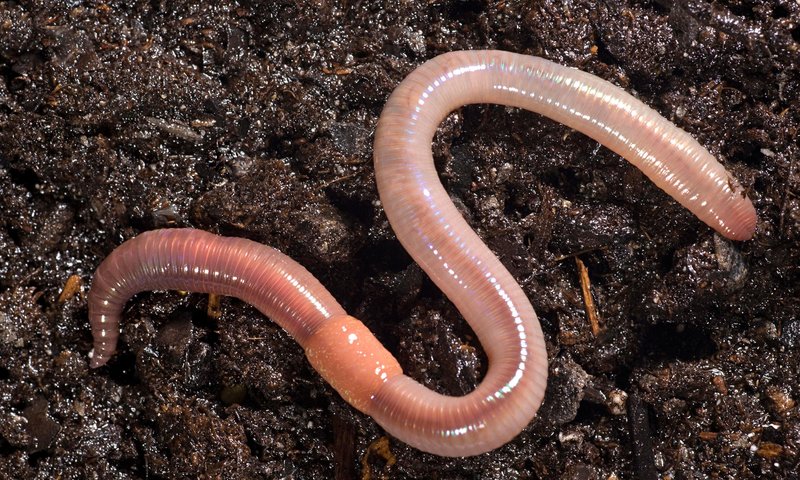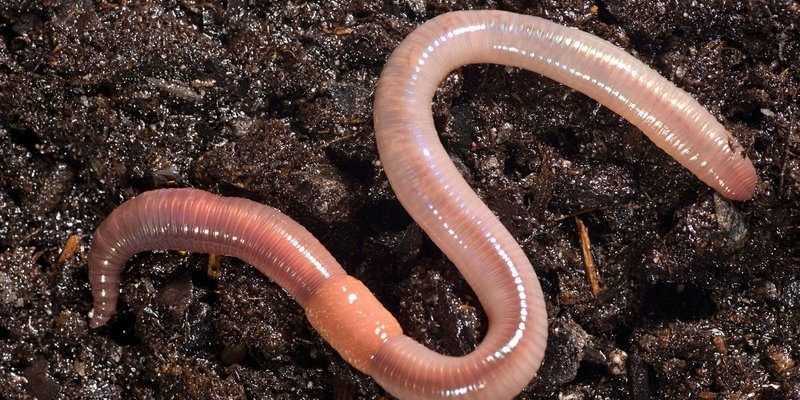
Earthworms are fascinating creatures that live underground, where they aerate the soil, break down organic matter, and enhance its nutrient content. You might be wondering, why should we care about these slimy soil dwellers? Well, let me explain. Earthworms not only help plants thrive but also contribute to a healthier environment overall. In this article, we’ll dig deeper into what earthworms are, their life cycle, and why they’re so important for our planet.
What Exactly Are Earthworms?
Earthworms belong to the phylum Annelida, which means they’re segmented worms. There are over 7,000 species of earthworms, with the most common type being the **Lumbricus terrestris**, or the common earthworm. They can vary in size from just a few centimeters to over a meter long! These fascinating creatures have soft, cylindrical bodies that often look a bit slimy, but this moisture helps them breathe through their skin.
You might be surprised to learn that earthworms don’t have a backbone; instead, they have a hydrostatic skeleton. This means their bodies are filled with fluid that helps them maintain shape and movement. When they wiggle through the soil, they’re not just traveling; they’re breaking up compacted earth and creating tunnels that allow air and water to reach plant roots more easily. Talk about powerful little guys!
The Life Cycle of an Earthworm
Understanding the life cycle of earthworms can give us valuable insight into their role in the ecosystem. An earthworm’s life begins as an egg, encased in a protective cocoon that the mother worm lays in the soil. After a few weeks, baby worms hatch and start their journey underground.
As they grow, earthworms can reach maturity in just a few months. Once they’re mature, they’re ready to reproduce. Earthworms are **hermaphrodites**, meaning each worm has both male and female reproductive organs. During mating, they exchange sperm with another worm, facilitating genetic diversity. The process is fascinating, showing just how adapted they are to thriving underground.
This life cycle is crucial because it ensures that earthworm populations can sustain themselves and contribute consistently to soil health. Their recycling of nutrients helps maintain soil fertility, which is vital for agriculture and natural ecosystems.
How Earthworms Improve Soil Quality
Earthworms are often called “nature’s plow” for a good reason. They play a pivotal role in improving soil quality. As they burrow and tunnel through the earth, they aerate the soil. This aeration allows oxygen to flow freely, which is essential for both plant growth and the organisms living in the soil. Think of it as a natural form of **soil cultivation**.
Moreover, when earthworms consume organic matter, like fallen leaves or decaying plants, they break it down into smaller particles. This *process*, known as **digestion**, converts organic material into nutrient-rich castings—essentially worm poop! These castings are packed with nitrogen, phosphorus, and potassium, making them an excellent natural fertilizer for plants.
This cycle of consumption and fertilization means that healthy earthworm populations can lead to flourishing crops, greener gardens, and thriving ecosystems. Honestly, without earthworms, we’d struggle to maintain the agricultural productivity we often take for granted.
The Environmental Importance of Earthworms
Beyond improving soil quality, earthworms are invaluable for maintaining a balanced ecosystem. They help in the decomposition process by converting organic waste into usable nutrients for plants and other organisms. Their tunnels also promote drainage, reducing water runoff and helping to prevent soil erosion.
You might be wondering, how do earthworms impact other creatures? Well, many animals, including birds, moles, and even some fish species, rely on earthworms as a food source. This shows how interconnected our ecosystem is; removing earthworms would have a ripple effect, destabilizing the food web.
Furthermore, healthy populations of earthworms can improve carbon sequestration, helping to mitigate climate change. By breaking down organic materials, they help store carbon in the soil instead of releasing it into the atmosphere. This process is crucial for managing greenhouse gases and ensuring a stable climate for future generations.
Threats to Earthworm Populations
Unfortunately, despite their importance, earthworm populations face numerous threats. Urbanization and industrial agriculture practices often lead to habitat destruction and soil degradation. The use of **pesticides** can also negatively impact earthworm health, killing them off and disrupting the natural balance of the ecosystem.
Another significant threat comes from invasive species. Some non-native earthworms can outcompete local species for resources, leading to a decline in native populations. This imbalance can further disrupt soil health and biodiversity.
If we want to protect earthworms—and by extension, our ecosystems—it’s essential to encourage sustainable farming practices and promote awareness about their importance. Simple actions, like reducing chemical use in gardens and supporting organic farming, can make a real difference.
How You Can Help Earthworms Thrive
If you’re inspired to help earthworms in your own backyard, there are several easy steps you can take. Here’s what you can do:
- Start composting: Compost piles are a great home for earthworms. They love the organic material you add, and they’ll help break it down into nutrient-rich compost.
- Avoid chemicals: Reducing or eliminating the use of pesticides and herbicides in your garden will keep your local earthworm population healthy.
- Mulch your garden: A layer of mulch helps retain moisture and provides excellent habitat for earthworms.
- Educate others: Share what you’ve learned about earthworms with friends and family. The more we know about these little warriors of the soil, the better we can protect them.
By nurturing earthworms, you’re not only helping them but also enhancing the overall health of your garden and environment.
Earthworms may seem small and insignificant, but their impact on our planet is enormous. From improving soil quality to maintaining the balance of ecosystems, they’re essential players in nature’s grand scheme. By understanding what earthworms are and why they matter, we can appreciate the vital role they play and take steps to protect them.
So, the next time you stumble upon an earthworm while gardening or walking outside, instead of turning away, remember that you’re looking at one of nature’s unsung heroes. Let’s give a little love to these marvelous creatures and ensure they continue their important work for generations to come.

